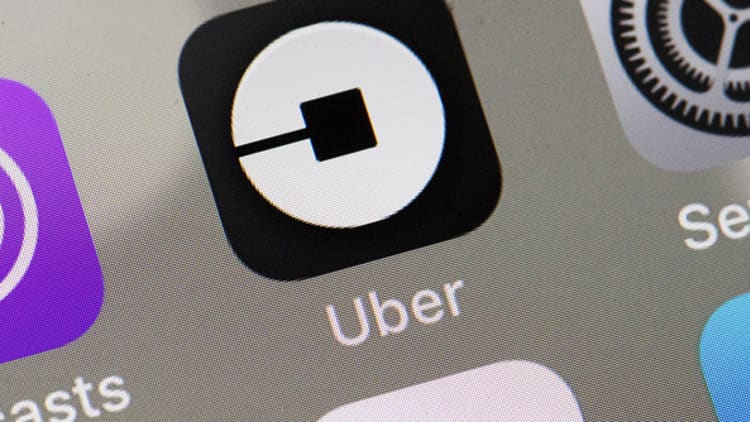Uber is planning a shift in emphasis from cars to electric bicycles and scooters for shorter journeys as part of its long-term strategy, according to the ride-hailing app's chief executive.
Dara Khosrowshahi said more individual modes of transport were better suited to inner-city travel, despite snatching revenues away from Uber's drivers. He admitted that in the short term the move would mean a further financial hit for a company that had losses of $4.5 billion last year.
Ahead of Uber's highly anticipated flotation, Mr Khosrowshahi said investors had to be aware that short-term losses were necessary to achieve longer-term goals — and part of that was a focus away from cars in inner cities.
"During rush hour, it is very inefficient for a one-tonne hulk of metal to take one person 10 blocks," he told the Financial Times in an interview. "We're able to shape behaviour in a way that's a win for the user. It's a win for the city. Short-term financially, maybe it's not a win for us, but strategically long term we think that is exactly where we want to head."
Uber first added e-bikes to its app in February, and acquired the bike-sharing company Jump for about $200m in April. Jump bikes are available in eight US cities, including New York, Washington and Denver, and are soon launching in Berlin.
More from the Financial Times:
How Adam Smith predicted the power of Big Tech
Digiceuticals and the potential for healthcare disruption
Uber's new finance chief is ready for the spotlight
Mr Khosrowshahi, who joined Uber a year ago, has also struck deals with Lime, an electric scooter company, and Masabi, a London-based app that provides mobile ticketing for public transport, with the aim of building what he calls an "urban mobility platform".
Besides transport, Uber has diversified into other business areas from food delivery to freight brokerage. He said no single product would serve the $6 trillion global mobility market and that the "ultimate competition" for Uber was car ownership, which it would try to disrupt in any way possible. He admitted that Uber makes less money from a bike ride than from the same journey in a car, but said he expected that impact to be offset if customers used the app for more journeys more regularly, an effect the company has already seen with cyclists in San Francisco.
"We are willing to trade off short-term per-unit economics for long-term higher engagement," he said. "I've found in my career that engagement over the long term wins wars and sometimes it's worth it to lose battles in order to win wars."
Mr Khosrowshahi acknowledged that Uber drivers would feel the pinch from potential passengers opting for bikes, but said over the longer term, drivers would benefit from a higher proportion of more lucrative longer rides — and less congested roads.
"When I've spoken to our driver partners about it, the first impression was, why are you bringing in a bike to compete against me?" he said. "The second impression after the conversation is, oh, I get a longer ride where I can make more money? Sign me up."


